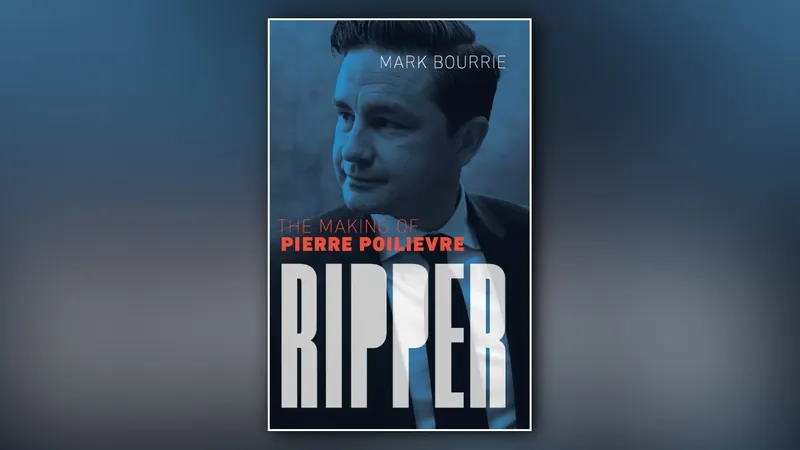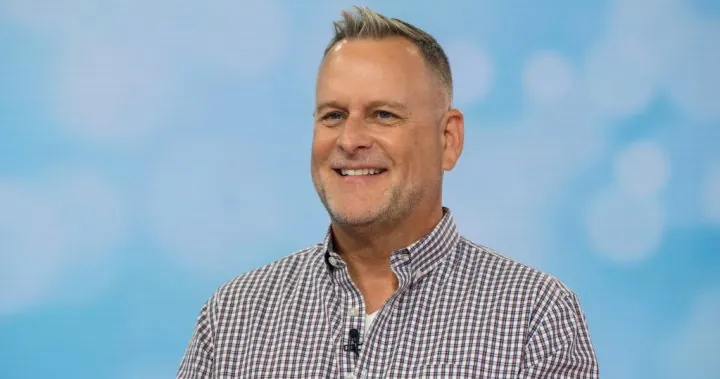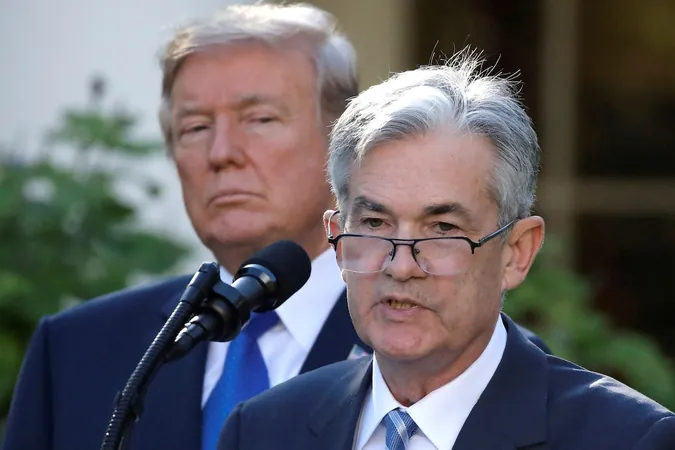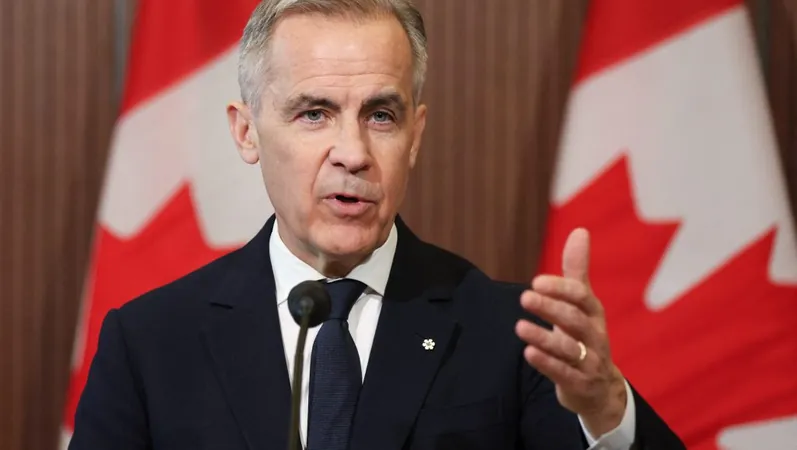
Is Pierre Poilievre's Time Up? Expert Weighs In on the Political Landscape
2025-04-13
Author: Olivia
For nearly two years, Conservative Leader Pierre Poilievre appeared to be on the fast track to becoming Canada’s next prime minister, consistently leading in the polls. But just as victory seemed inevitable, a dramatic shift occurred: Justin Trudeau, the long-standing Liberal leader and prime minister, announced his resignation.
Now, with a federal election looming just weeks away, Poilievre finds himself in an unexpected position—trailing former Bank of Canada governor Mark Carney, Trudeau’s successor, who has quickly neutralized one of Poilievre's key issues, the consumer carbon tax. Instead of rallying for populism, voters seem to crave stability as they face a heightened political climate, especially with U.S. President Donald Trump stirring fears on the global stage.
According to Mark Bourrie, the biographer of Poilievre, the electorate is increasingly tired of the chaos surrounding politics. Bourrie notes, “People are really sick of politics right now... They want someone who can simplify things, and Carney is presenting himself as that solution, embodying a return to normalcy.”
Poilievre, often categorized as a ‘Ripper’—a political figure who thrives on confrontation and dismantling opponents—may struggle to pivot to a more unifying role as a leader. Bourrie emphasizes that while Rippers excel in opposition, they often fail to establish a cohesive strategy needed for governance.
Bourrie likens Poilievre to a Canadian version of Trump, suggesting that heavy ties to the populist right might hinder his credibility, particularly when Trump’s rhetoric threatens Canada’s stability. He warns that the populist wave could have favored Poilievre, but Trump’s erratic behavior has undercut that potential.
Describing Poilievre as the ‘political equivalent of a hockey goon,’ Bourrie critiques his focus on catchy slogans over substantive policy, despite acknowledging his exceptional skills in political communication. Poilievre's flair for crafting impactful slogans could have translated into a successful career in advertising, Bourrie posits.
With a significant social media presence, especially on platforms like YouTube—where he outpaces both Carney and Trudeau—Poilievre has harnessed the digital landscape effectively. However, Bourrie argues that he may have miscalibrated his messaging, relying too heavily on personal jabs and slogans that resonate more with negativity than policy.
Bourrie hopes that his book prompts reflection on Poilievre's political journey, questioning his capability to evolve from a partisan attack dog to a responsible national leader. Concerns linger that if Poilievre finds himself in leadership but faces challenges, his instinct might lean towards blame rather than solution.
“If he is elected and things fall apart, don’t expect him to look inward for answers,” Bourrie cautions, concluding, “That’s not the leadership Canada needs right now.”









 Brasil (PT)
Brasil (PT)
 Canada (EN)
Canada (EN)
 Chile (ES)
Chile (ES)
 Česko (CS)
Česko (CS)
 대한민국 (KO)
대한민국 (KO)
 España (ES)
España (ES)
 France (FR)
France (FR)
 Hong Kong (EN)
Hong Kong (EN)
 Italia (IT)
Italia (IT)
 日本 (JA)
日本 (JA)
 Magyarország (HU)
Magyarország (HU)
 Norge (NO)
Norge (NO)
 Polska (PL)
Polska (PL)
 Schweiz (DE)
Schweiz (DE)
 Singapore (EN)
Singapore (EN)
 Sverige (SV)
Sverige (SV)
 Suomi (FI)
Suomi (FI)
 Türkiye (TR)
Türkiye (TR)
 الإمارات العربية المتحدة (AR)
الإمارات العربية المتحدة (AR)